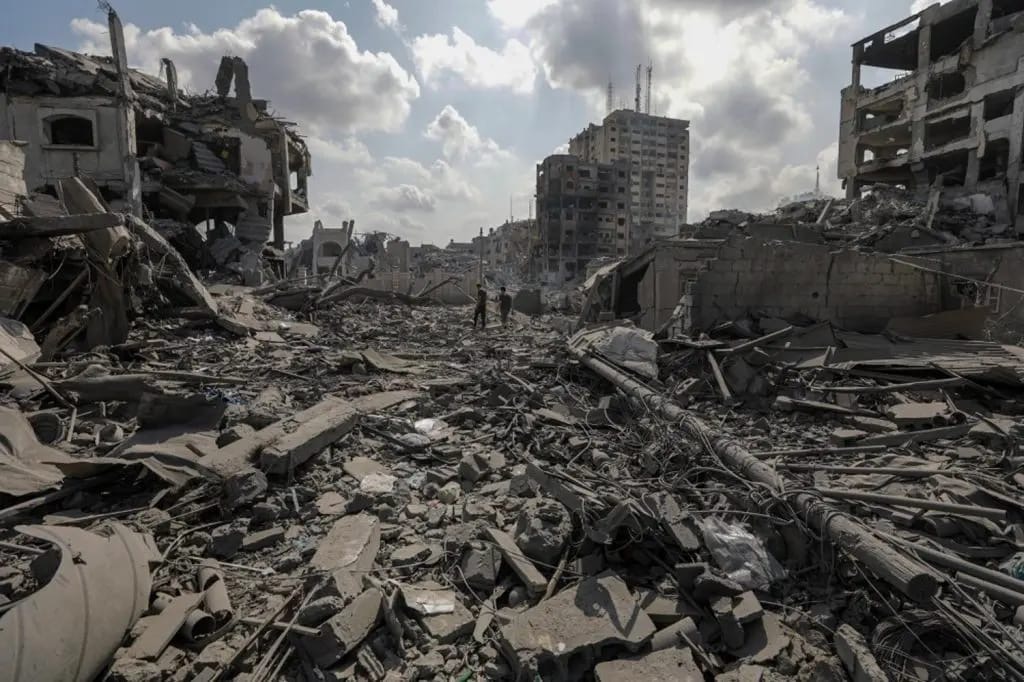The United Nations (UN) has expressed worries over the huge amount required to rebuild Gaza.
Based on its assessments,, UN said billions of dollars would be needed to rebuild Gaza after the war between Israel and the Palestinian militant group Hamas.
A ceasefire between Israel and Hamas took effect on Sunday, suspending a 15-month-old war that has devastated the Gaza Strip and inflamed the Middle East.
According to Israeli tallies, the Hamas attack on Israel killed 1,200 people while Israel’s retaliation has killed more than 46,000 people, according to Gaza’s health ministry.
The UN damage assessment released this month showed that clearing over 50 million tonnes of rubble left in the aftermath of Israel’s bombardment could take 21 years and cost up to 1.2 billion dollars.
The debris is believed to be contaminated with asbestos, with some refugee camps struck during the war known to have been built with the material.
The rubble also likely holds human remains which the Palestinian Ministry of Health estimates that 10,000 bodies are missing under the debris.
A United Nations Development Programme official said on Sunday that development in Gaza has been set back by 69 years as a result of the conflict.
According to a UN report released in 2024, rebuilding Gaza’s shattered homes will take at least until 2040, but could drag on for many decades.
The report said two-thirds of Gaza’s pre-war structures, over 170,000 buildings have been damaged or flattened, according to UN satellite data (UNOSAT) in December and that amounts to around 69 per cent of the total structures in the Gaza Strip.
According to an estimate from UNOSAT within the count are a total of 245,123 housing units, currently, over 1.8 million people need emergency shelter in Gaza, the UN humanitarian office said.
The report estimated that the damage to infrastructure totalled 18.5 billion dollars as of end-Jan. 2024, affecting residential buildings, commerce, industry, and essential services such as education, health, and energy, a UN World Bank report said. It has not provided a more recent estimate for that figure.
An update by the UN humanitarian office showed that less than a quarter of the pre-war water supplies were available, while at least 68 per cent of the road network had been damaged.
Satellite images analyzed by the United Nations show more than half of Gaza’s agricultural land, crucial for feeding the war-ravaged territory’s hungry population, has been degraded by conflict.
The data reveals a rise in the destruction of orchards, field crops and vegetables in the Palestinian enclave, where hunger is widespread after 15 months of Israeli bombardment.
The UN Food and Agriculture Organization said in 2024 that 15,000 cattle, or over 95 per cent of the total had been slaughtered or died since the conflict began and nearly half the sheep.
Palestinian data shows that the conflict has led to the destruction of over 200 government facilities, 136 schools and universities, 823 mosques and three churches.
The UN humanitarian office’s report showed that many hospitals have been damaged during the conflict, with only 17 out of 36 units partially functional as of January.
Amnesty International’s Crisis Evidence Lab has highlighted the extent of destruction along Gaza’s eastern boundary.
As of May 2024, over 90 per cent of the buildings in this area, including more than 3,500 structures, were either destroyed or severely damaged.

